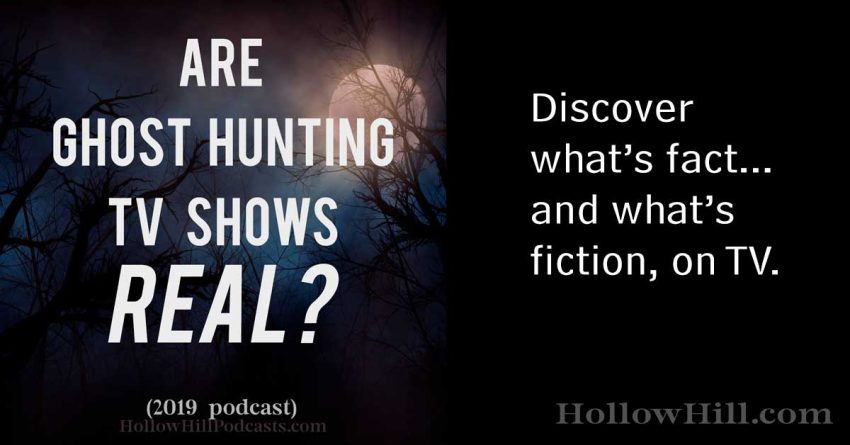In this 5-minute podcast, you’ll learn what’s (probably) real – and what isn’t – on ghost hunting TV shows. In the past, I’ve talked about how “real” (or fake) ghost hunting is, on TV shows. I’m always happy to explain why some of what you see on ghost hunting TV shows… Well, it had to…
Tag: TV shows
A professional talks about ghost hunting TV shows and movies.

